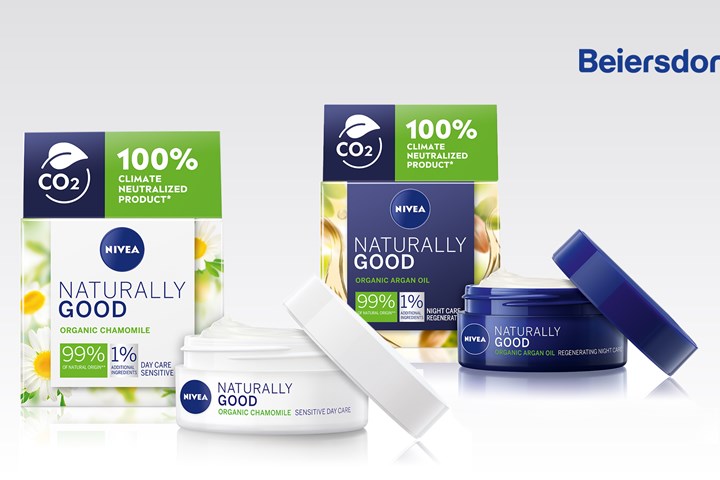Skin-Care Manufacturer to Use SABIC’s Biobased PP
Beiersdorf innovates packaging of its Nivea portfolio of face creams to reduce use of fossil-based virgin PP.
Global skin-care manufacturer Beiersdorf is innovating the packaging of its world-leading Nivea Naturally Good range of day and night face creams with the use of biobased PP from SABIC, part of the company’s Trucircle of certified renewable polymers. The new Nivea packaging, to be phased in at point-of-sale outlets worldwide from June 2021 onward, represents a major contribution to help Beiersdorf reduce its use of fossil-based virgin PP.
The sustainable jar is an example of successful three-way value chain collaboration, accelerating the time from ideation to the retailer shelves. By bringing SABIC to the table to work together with Berry Global, a long and trusted upstream partner of the brand owner for the production of face-care packaging, Beiersdorf managed to advance the project from concept to implementation in just nine months.

The product plays into the company’s ambitious Sustainable Packaging Targets 2025 to reduce fossil-based virgin plastics for its cosmetic packaging products by 50%. The company’s is aiming to achieve three major packaging goals by 2025 as compared to 2019: make all of the group’s packaging 100% refillable, reusable or recyclable; increase the share of recycled materials in plastic packaging to 30%; and reduce the use of fossil-based virgin plastics by 50%.
Converting the packaging also reduces CO2 emissions. According to Beiersdorf, approximately 76 g of CO2 are saved per jar produced, a reduction of around 60% compared to the fossil-based jar. As such, it also contributes to Beiersdorf’s climate target of reducing its greenhouse gas emissions by 30% absolutely across the entire value chain by 2025.
Says Beiersdorf’s head of global packaging development, “We are excited to implement this important change in the packaging of our Nivea brand products and to be the first in the skincare mass market to use polypropylene made from second-generation bio-based feedstock on a global basis. Together with SABIC, we have taken a major step forward in transforming conventional fossil-based packaging in the cosmetics and skin care segment towards fully sustainable material alternatives.”
Said Abdullah Al-Otaibi, SABIC’s general manager of engineering thermoplastics & market solutions for petrochemicals, “Innovative cosmetics packaging using our certified renewable polyolefins can be instrumental in minimizing fossil depletion across a wide range of further consumer mass product markets, and Beiersdorf’s new Nivea packaging can serve as a role model in this quest. Our materials from renewable sources facilitate the changeover from existing fossil-based applications without compromises on purity, quality, safety or convenience. SABIC is determined to help its collaboration partners benefit from this potential.”
Related Content
-
How to Extrusion Blow Mold PHA/PLA Blends
You need to pay attention to the inherent characteristics of biopolymers PHA/PLA materials when setting process parameters to realize better and more consistent outcomes.
-
Making a Play With PHA
Processors with sustainability goals or mandates have a number of ways to reach their goals. Biopolymers are among them.
-
Advanced Biobased Materials Company PlantSwitch Gets Support for Commercialization
With participation from venture investment firm NexPoint Capital, PlantSwitch closes it $8M bridge financing round.
















